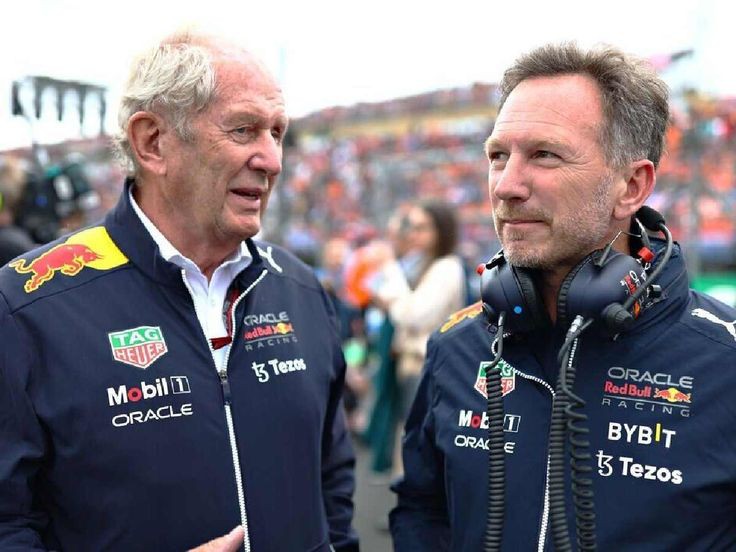In the fast-paced world of Formula 1, relationships and dynamics between drivers and team personnel can often be complex. Few figures within the Red Bull Racing team are as prominent and influential as Dr. Helmut Marko, the Austrian former racing driver who has played a pivotal role in the development of Max Verstappen’s career. Recently, Marko was dubbed the “second father” of Verstappen by some observers due to his significant impact on the Dutch driver’s journey from a young karting prodigy to a two-time Formula 1 World Champion.
Marko’s relationship with Verstappen has always been more than just a traditional team principal-driver dynamic. Over the years, Marko has become an integral mentor to Verstappen, and their bond has evolved into something deeper than just professional. However, in response to the “second father” label, Marko has addressed this characterization, shedding light on the complexities of his relationship with the 26-year-old and giving insight into how they work together both on and off the track.
Marko’s Role in Verstappen’s Career
Helmut Marko’s influence over Max Verstappen’s career dates back to when Verstappen was just a teenager. It was Marko who made the bold decision to bring Verstappen into the Red Bull Racing family at a time when the young driver was still in the early stages of his racing career. At the age of just 17, Verstappen was given a seat at Scuderia Toro Rosso (now known as AlphaTauri), Red Bull’s sister team, making him the youngest driver in F1 history. This move, backed by Marko’s keen eye for talent, was a gamble that paid off in ways few could have predicted.
Over the years, Marko has remained one of Verstappen’s staunchest supporters and a key figure in his success. From the very beginning, he has played a hands-on role in guiding Verstappen through the highs and lows of his career, offering advice, providing support, and ensuring that the driver stays focused on his goals. Marko has not only been a mentor but also a critical voice in the development of the car and the team’s strategy, both of which have been essential in Verstappen’s dominance in recent seasons.
The ‘Second Father’ Label
Despite their close professional relationship, the label of “second father” is something that Marko was initially reluctant to embrace. While it is undeniable that he has had a profound influence on Verstappen’s development, Marko has been careful not to overstep the boundaries of his role. In a recent interview, he responded to the label by acknowledging the closeness of their relationship but also emphasizing the professional nature of their bond.
Marko explained that, while he and Verstappen have developed a strong relationship over the years, the term “second father” can be misleading. He noted that his primary responsibility is to ensure that Verstappen, as a driver, is placed in the best position to succeed, both in terms of team strategy and car development. Marko also pointed out that, while he offers support and mentorship, he does not view his role as that of a father figure in the traditional sense. According to Marko, the term could suggest a level of emotional attachment that is simply not reflective of their working relationship.
However, Marko did acknowledge that he has a great deal of respect for Verstappen as a driver and as a person. Over the years, their relationship has grown beyond that of just team principal and driver. Marko has seen Verstappen mature from a talented but raw teenager into one of the most accomplished drivers in Formula 1 history. This, Marko says, is something that has created a bond based on mutual respect, trust, and shared goals.
The Evolution of Their Relationship
As Verstappen’s career progressed, so too did his relationship with Marko. In the early years, their dynamic was one of a mentor and mentee. Marko was instrumental in guiding Verstappen through the intense pressures of Formula 1, offering him advice on how to deal with the challenges of racing at the highest level. This included helping Verstappen understand how to navigate the politics of the sport, how to maintain focus under pressure, and how to deal with the intense media scrutiny that comes with being a top driver.
But as Verstappen matured both as a driver and as an individual, the relationship between him and Marko evolved. Marko began to view Verstappen less as a protégé and more as a peer. Verstappen, in turn, began to take on more responsibility within the team, providing invaluable feedback on the car and its setup, and working closely with Marko and the engineering team to refine the car’s performance.
Their bond became more of a partnership, with Marko appreciating Verstappen’s growing sense of independence and maturity.

